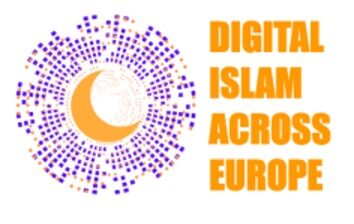Gary R Bunt (UK Team and Website data analysis)
Anna Grasso (UK Team and Website data analysis)
This archive is part of the Digital Islam Across Europe project’s collection. One of the DigitIslam project outputs focuses on website data and collection analysis. The objective is to identify, catalogue and analyse Muslim organisations’ and actors’ websites (Online Islamic Environments or OIEs) from these different countries.1
This collection showcases the principal Muslim organisations in the UK as well as those who are most active online. We find the main umbrella organisations such as the “Muslim Council of Britain”, “Muslim Council of Scotland”, “Muslim Council of Wales”, the “Belfast Islamic Centre”, the “British Board of Scholars & Imams”, “Mosques and Imams National Advisory board”, as well as others.
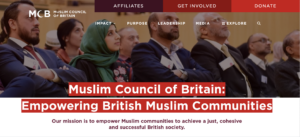
Muslim Council of Britain website
Some websites in this collection are structured around religious authority figures who provide advice and analysis on everyday matters and current events. Some examples are “Islam 21C”, “Islam Answers”, “Islamic Portal”…
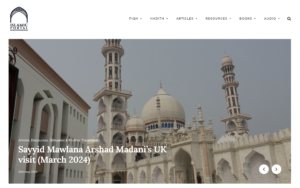
Islamic Portal website
We also find National organisations focused on a specific sector such as the “National Burial Council”, “National Chaplains’ Association”, or the “Halal Monitoring Committee”.
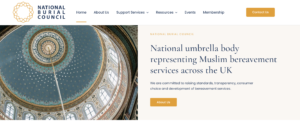
National Burial Council website
In this compliation we also encounter online platforms focused around producing inspirational religious content. Examples of this are “Deenspiration”, “Ilmfeed”, “Islamiqate”, etc.

Ilmfeed website
Another group of websites in this collection function as databases providing archives and statistics regarding Muslims in the UK. These are for example “Muslim Census”, “Salaam”, “Muslims in Britain”, as well as others.
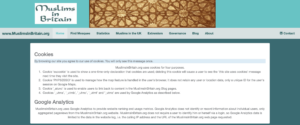
Muslims in Britain website
Finally, we included websites of influential transnational organisations based in the UK such as the “Islamic Foundation”, “Islamic Relief”, “Islamic Council of Europe”, “Jamiat Ulama-I-Hind”… We chose to include the Ahmadiyya community due to its important online presence and historical roots in the UK.
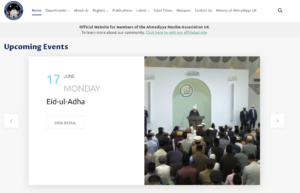
Ahmadiyya community’s official website
Nonetheless, some organisations in this collection have issued statements refuting this community as being a non-Muslim sect such as the Muslim Council of Scotland.
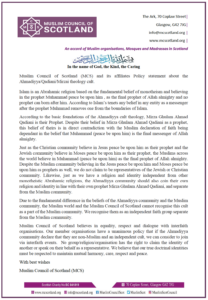
Statement from the Muslim Council of Scotland website
Most of the websites in this collection are active producing content on a regular basis as well as having an important presence in social media. Nonetheless, some websites are currently not functioning such as “Deenspiration” or the “Mosques and Imams National Advisory Board” which further demonstrates the importance of archiving such content.
This archive consists of an initial capture. We will be updating this list in due course. We believe this data can become a useful tool for researchers and the general public who have an interest in digital Islam across Europe as well as those who are mostly focused on the study of Islam or comparative religion within the British or Western context. Moreover, the analysis of these sites will be part of a wider project output through presentations and publications.
- For more information on this: https://blogs.ed.ac.uk/digitalislameurope/research-findings/archiving/ back
Image: Humzah Patel, CC BY 2.0 <https://creativecommons.org/licenses/by/2.0>, via Wikimedia Commons
